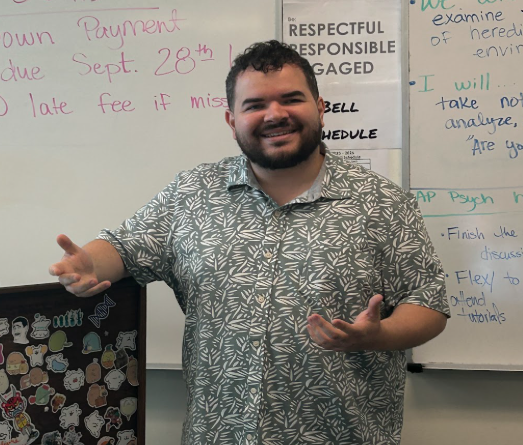Frizzy hair problems? Do you feel like your hair is unruly or that you have been shocked
by electricity? Austin is known for its humid climate causing havoc on hair. When it’s humid outside, hair expands by attracting more hydrogen bonds from the air. This is a problem that many students face and have to fight off by using various styling strategies like wearing a hat, using a heavy load of hair products or shaving it all off.
The cool thing about dealing with hair, especially under this extremity, is that just talking to a hairstylist can help solve the problem; because not only can they recommend a true solution, but they know some interesting things about why hair reacts the way it does on a molecular level. Also, much information about taming hair can be found on the Internet through youtube.com, reviews on certain products, or background information on how hair frizzes.
First, many people grab straightening serums and the flat iron to tame the frizz; it’s a great temporary solution, but it can actually cause more harm than good if this solution is used frequently because the flat iron removes the hair’s natural oils, making it dry and brittle, which makes your hair to appear even frizzier.
Other solutions can be to use hair care products that are designed to reduce frizz. There’s a vast amount of products to choose from that can help such as Aquage SeaExtend Silkening Oil Treatment, Garnier Fructis Anti-Humidity products, or oil based products like Moroccanoil treatment, treatment light, frizz control or luminous hairspray. Regular oils such as grape seed, coconut, and/or olive can also be beneficial. The Aveda Smooth Infusion is 97 percent naturally derived and does not contain chemicals.
Opt for sulfate-free products that that contain silicone. Sulfates are used in shampoos to produce foam and help spread the shampoo with ease. Sulfates should be avoided because of their hair-drying properties. Depending on the type of silicone, it can create a waterproof-like seal on hair which helps it be less humidity absorbing, and results in smooth and silky hair.
When washing hair, don’t avoid using conditioner. It has restorative properties. Shampoo cleanses your scalp and hair, getting rid of the gunk. Although this can be good, it can be abrasive and can leave hair dry. Using a conditioner afterwards helps to moisturize and add shine to hair. Also, avoid washing hair too often, one to three times a week (depending on your hair type). You can also get shampoo and conditioner that are constructed to prevent frizz and puffiness.
Another option would be to get a permanent relaxer, which will permanently change the bonds within the structure of the hair to create a straighter and smoother appearance. It’s all about changing the bonds, therefore it all relates to chemistry.
“When it’s humid outside the hair’s structure and bonds are changing, due to the hairs absorption of hydrogen in the atmosphere, therefore if you want to get rid of the frizz and puffiness then you have to rearrange the structure and bonds,” Melissa Mercado, a professional hairdresser for more than 20 years, said.
Hair is made up of keratin. The bonds of keratin are called alpha keratin and they are broken down into amino acids such as glycine, alanine, and cysteine, which together form coils. Found within the coils are both hydrogen and disulfide bonds that are what maintain the style you form. Hydrogen bonds can be reshaped temporarily through day-to-day styling and disulfide bonds can permanently reform the hair’s structure through chemicals. So in a nutshell, when water is present, the hydrogen bonds in the hair shift and expand; when hair dries, the opposite occurs – it shrinks. A professional hairdresser uses chemistry to understand why hair reacts in order to find a solution to a problem.
For more information or just an example of what to do, watch this video http://www.allure.com/services/lookup?videoId=1728875682001&defaultPath=/video%3FvideoID%3D1728875682001.





